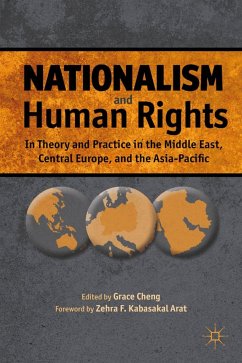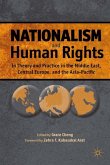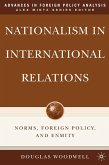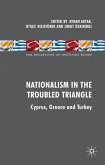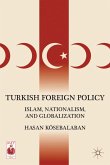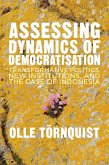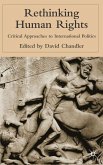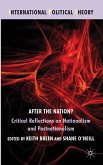"David Brooks, the New York Times columnist, has written that no one wants to die for the United Nations or NATO, but persons are willing to die for their nation. This prevalent if incomplete truth highlights the tension between universal human rights and the evident tendency of many to give priority to national identity, national interests, and national sovereignty. While universal human rights have been regularly proclaimed and even legally codified since 1945, their actual enforcement often founders on the hard rock of narrow and exclusionary nationalism. This book addresses this conundrum with illuminating studies, highlighting how human rights, a project of the Enlightenment, are often violated due to a romantic conception of the nation. Despite its centrality, this clash has often been overlooked in human rights studies, and this book provides a useful step in correcting that omission."
David P. Forsythe, emeritus University Professor and Charles J. Mach Distinguished Professor of Political Science, University of Nebraska
"Nationalism and human rights are two of the most potent political ideologies of recent world history. Of the two, the idea of human rights has more prima facie legitimacy, while nationalism is overshadowed by its destructive excesses. Many have consequently concluded that nationalism and human rights are incompatible, and that the 'progressive' cause is to reduce the influence of nationalism and to improve that of human rights. This volume of essays shows that the relations between the two ideologies are much more complex, both empirically and normatively, and the resolution of their relationship, both in theory and in practice, is very difficult. All those interested in nationalism and human rights and, regrettably, these two groups rarely overlap will find much valuable information and thought-provoking argument in this fine collection."
Michael Freeman, professor of Government, University of Essex
"Far from having ended militarism, ethnic exclusivism, and patriarchy, nationalism has exacerbated them in many post-colonial states. This wide-ranging set of essays helps us understand how the new witches' brew influences universal human rights in Central Europe, the Middle East, and Asia."
Thomas G. Weiss, Presidential Professor of Political Science, The CUNY Graduate Center
David P. Forsythe, emeritus University Professor and Charles J. Mach Distinguished Professor of Political Science, University of Nebraska
"Nationalism and human rights are two of the most potent political ideologies of recent world history. Of the two, the idea of human rights has more prima facie legitimacy, while nationalism is overshadowed by its destructive excesses. Many have consequently concluded that nationalism and human rights are incompatible, and that the 'progressive' cause is to reduce the influence of nationalism and to improve that of human rights. This volume of essays shows that the relations between the two ideologies are much more complex, both empirically and normatively, and the resolution of their relationship, both in theory and in practice, is very difficult. All those interested in nationalism and human rights and, regrettably, these two groups rarely overlap will find much valuable information and thought-provoking argument in this fine collection."
Michael Freeman, professor of Government, University of Essex
"Far from having ended militarism, ethnic exclusivism, and patriarchy, nationalism has exacerbated them in many post-colonial states. This wide-ranging set of essays helps us understand how the new witches' brew influences universal human rights in Central Europe, the Middle East, and Asia."
Thomas G. Weiss, Presidential Professor of Political Science, The CUNY Graduate Center

